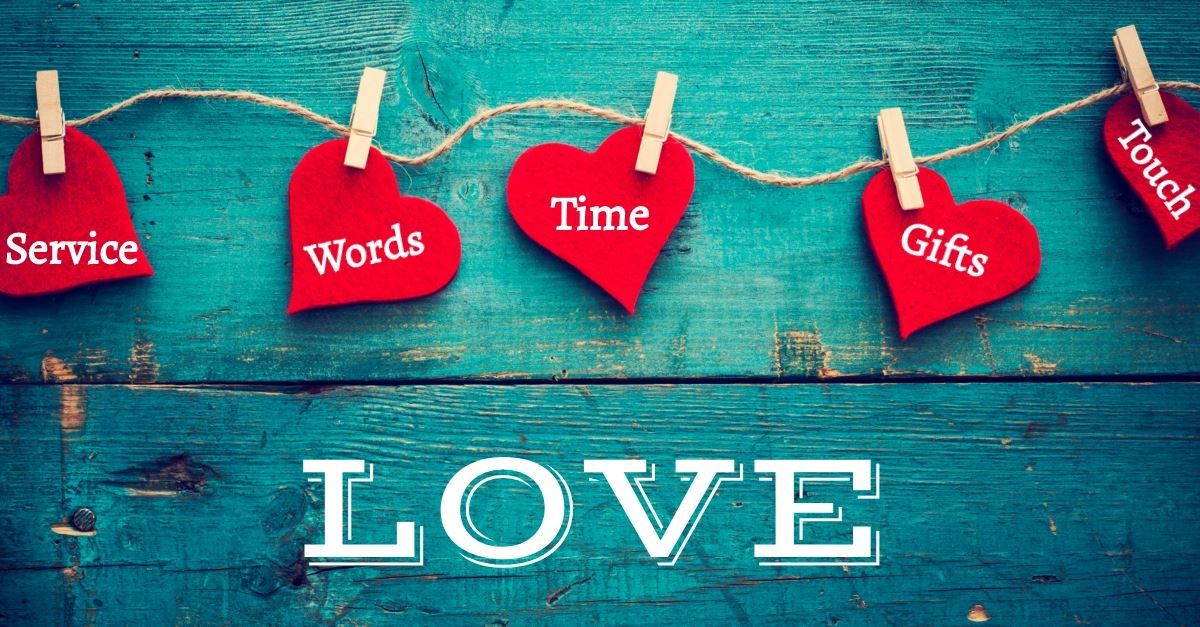
Nasty side effects of depression with long term romantic relationships. How is your chronic depression affect your existing relationship and finding solutions to avoid losing the people you care about the most? Here are some valid strategies to make things work.
Depression is not just an individual struggle; it has far-reaching impacts on those closest to you, especially your romantic partner. When chronic depression enters a long-term relationship, it can create invisible barriers, misunderstandings, and unintended harm, putting even the strongest bonds to the test.
To safeguard your connection with the person you love, it’s important to understand how depression affects your relationship and learn strategies to address these challenges together.
The Impact of Chronic Depression on Relationships
- Emotional Disconnection: Depression often numbs emotions, making it difficult to express love, joy, or gratitude. Partners may feel neglected or unappreciated, mistaking the withdrawal for a lack of care.
- Communication Breakdowns: Negative thought patterns and feelings of hopelessness can lead to irritability or silence, reducing open and effective communication. This can make resolving conflicts or discussing needs increasingly difficult.
- Increased Dependency: Depression can lead to over-reliance on your partner for emotional support, potentially overwhelming them and disrupting the balance in your relationship.
- Lowered Intimacy: Fatigue, self-esteem issues, and a lack of interest—common symptoms of depression—can reduce physical and emotional intimacy, creating distance between partners.
- Guilt and Shame: People with depression often feel guilty for how their condition affects their partner, which can lead to further isolation and avoidance, compounding the problem.
- Tension and Resentment: Over time, the strain of dealing with untreated depression can create resentment in your partner, as they may feel their needs are being sidelined.
Finding Solutions to Avoid Losing the Ones You Love
While depression is a serious challenge, it doesn’t have to be the undoing of your relationship. With intentional efforts, open communication, and the right strategies, you can navigate this storm together.
- Acknowledge the Problem: The first step is recognizing how depression is affecting your relationship. Have an honest conversation with your partner about how you feel and how it impacts them. Acknowledging the issue lays the foundation for improvement.
- Seek Professional Help: Therapy is crucial for managing depression. Individual counseling can help you process emotions, while couples therapy can provide tools for navigating the relational challenges caused by depression.
- Practice Open Communication: Share your feelings and struggles with your partner. Encourage them to share theirs, too. Transparency fosters understanding and prevents misinterpretations of your behavior.
- Set Realistic Expectations: Depression recovery is a journey, not a quick fix. Set small, attainable goals for your personal growth and your relationship. Celebrate progress, no matter how minor it seems.
- Prioritize Self-Care: Taking care of yourself is essential for improving your mental health. Focus on activities that help you recharge, such as exercise, mindfulness practices, or hobbies that bring you joy.
- Avoid Codependency: While your partner’s support is invaluable, avoid relying solely on them to “fix” you. Lean on other sources of support, such as friends, family, or support groups.
- Educate Your Partner: Help your partner understand depression by sharing resources or inviting them to therapy sessions. When they see your condition as a shared challenge rather than a personal flaw, they’ll feel more equipped to help.
- Build a Support Network: Beyond your partner, establish a circle of trusted friends or family members who can offer additional emotional support. A diverse support system can reduce the burden on your relationship.
- Reignite Intimacy: Start small—a kind word, a thoughtful gesture, or a simple date night. Rebuilding physical and emotional closeness takes time but can strengthen your bond.
- Focus on Gratitude: Depression often highlights the negatives, but practicing gratitude—even for small things—can help shift your perspective and remind your partner of your appreciation for them.
How to move forward despite these challenges
Chronic depression is a tough adversary, but with patience, empathy, and consistent effort, it doesn’t have to jeopardize your relationship. Remember, you and your partner are a team. Facing depression together can deepen your connection and help you grow stronger as individuals and as a couple. Don’t hesitate to seek professional help or use the strategies above to ensure you preserve and nurture the bond with the person you care about most.


Building emotional intimacy after the spark is gone. The many struggles couples face in the 21st century! Finding effective strategies that can work when putting in the effort!
Emotional intimacy is the bedrock of a healthy, long-lasting relationship. It goes beyond physical attraction and shared interests; it’s about vulnerability, trust, and deep emotional connection. However, in today’s fast-paced and tech-driven world, many couples face significant challenges maintaining this connection, especially when the initial “spark” fades. The good news is that emotional intimacy can be rebuilt with effort, understanding, and the right strategies.
Why Emotional Intimacy Fades
Before delving into solutions, it’s important to understand why emotional intimacy wanes over time. Some common factors include:
- Life Stressors: Careers, parenting, financial pressures, and health challenges often take precedence, leaving little energy for connection.
- Technology Overload: Constant connectivity to devices can lead to disconnection from partners.
- Unrealistic Expectations: Social media often paints an unrealistic picture of relationships, leading to disappointment when real life doesn’t match up.
- Routine and Complacency: Over time, couples may fall into predictable patterns, losing the excitement and novelty that fueled the early days of their relationship.
- Lack of Communication: Misunderstandings, unresolved conflicts, or simply not sharing thoughts and feelings can create emotional distance.
While these challenges are common, they are not insurmountable. By understanding the struggles and committing to change, couples can rebuild and even strengthen their bond.
Strategies for Rebuilding Emotional Intimacy
- Prioritize Quality Time
- Life gets busy, but carving out time to connect is essential. Schedule regular date nights or “technology-free” evenings where you can focus solely on each other. Even small gestures, like having coffee together in the morning, can make a big difference.
- Practice Open and Honest Communication
- Share your thoughts, fears, and dreams openly with your partner. Active listening—being present and genuinely interested in what they’re saying—is just as important. Avoid interrupting or dismissing their feelings.
- Rekindle Physical Affection
- Physical touch can reignite emotional closeness. Simple acts like holding hands, hugging, or cuddling release oxytocin, the “bonding hormone.” Intimacy doesn’t always have to lead to sex; sometimes, the act of touch itself can be healing.
- Show Appreciation
- Over time, it’s easy to take your partner for granted. Make a habit of expressing gratitude for the little things they do. A heartfelt “thank you” or a note of appreciation can go a long way in making your partner feel valued.
- Engage in New Experiences Together
- Novelty can reignite excitement in a relationship. Try a new hobby, travel to an unfamiliar destination, or take a cooking class together. Shared experiences create lasting memories and deepen your bond.
- Seek Professional Help When Needed
- Sometimes, unresolved conflicts or deep-seated issues require the guidance of a therapist. Couples therapy can provide a safe space to explore feelings and learn effective communication and conflict-resolution skills.
- Reconnect Through Shared Goals
- Setting goals as a couple—whether it’s saving for a home, starting a business, or adopting a healthier lifestyle—can strengthen your partnership. Working together toward a common purpose fosters teamwork and emotional closeness.
- Rediscover Each Other
- People change over time, and so do relationships. Take the time to “date” your partner again. Ask questions about their current dreams, challenges, and interests. Relearning who they are now can reignite your curiosity and admiration for them.
- Focus on Self-Improvement
- A healthy relationship starts with healthy individuals. Work on your own emotional well-being through mindfulness, self-care, or therapy. When you feel fulfilled as an individual, you’re better equipped to show up for your partner.
- Develop Rituals of Connection
- Rituals create consistency and a sense of security in a relationship. This could be as simple as a goodnight kiss, a weekly walk, or a “check-in” conversation where you each share your highs and lows of the day.
Navigating Modern Challenges
Couples in the 21st century face unique challenges that require modern solutions. Here’s how to address some of them:
- Technology: Set boundaries for screen time, such as no phones during meals or in the bedroom. Use technology to connect rather than disconnect—send loving messages or photos to remind your partner you’re thinking of them.
- Busy Schedules: If finding time is difficult, integrate connection into your daily routine. Talk during your commute, exercise together, or share a chore to maximize time spent together.
- Social Media Pressures: Avoid comparing your relationship to others’ curated online lives. Focus on what works for you as a couple and celebrate your unique journey.
The power of effort and consistency.
Rebuilding emotional intimacy takes intentional effort from both partners. It’s not about fixing the relationship overnight but committing to small, consistent actions that nurture connection over time. Remember, the “spark” is just the beginning of a relationship—true intimacy is built in the everyday moments of understanding, patience, and love.
When both partners are willing to put in the work, even the most disconnected relationships can transform into deeply fulfilling partnerships. The journey to emotional intimacy is not without its challenges, but the rewards—a deeper connection, greater trust, and enduring love—are worth every step.
As long as there is no emotional or physical abuse, any relationship can be repaired if both partners are fully committed to making it work. If you’ve both put in the effort and still haven’t succeeded, you can move forward confidently, knowing you gave it your all without regret. While investing time and energy is crucial, forcing a relationship to continue may not always be the wisest choice, even when young children are part of the equation.


Can premarital counseling contribute to lowering the likelihood of divorce? Is marriage counseling truly effective, or is it a futile investment of time and money? These are the key subjects we aim to explore and discuss.

Premarital counseling has shown to be a valuable and effective tool in contributing to the reduction of the likelihood of divorce. This form of counseling is designed to provide couples with the necessary skills, insights, and communication strategies to navigate the challenges that may arise in a marriage.
One of the primary benefits of premarital counseling is that it allows couples to address potential issues before they become major problems. By exploring topics such as communication styles, conflict resolution, and expectations, couples can gain a deeper understanding of each other’s perspectives and develop healthier ways to manage disagreements. This proactive approach sets a strong foundation for a resilient and enduring marriage.
Furthermore, premarital counseling often includes discussions about core values, goals, and beliefs. Aligning these fundamental aspects of a relationship can help couples build a shared vision for their future, fostering a sense of unity and purpose. By addressing potential areas of disagreement early on, couples are better equipped to make informed decisions and navigate challenges as a team.
Premarital counseling, while beneficial for many couples, may present challenges to many others. Some couples may encounter resistance or a lack of commitment, hindering the effectiveness of the sessions. Unrealistic expectations, potential mismatches with cultural or religious beliefs, and financial strain can also be drawbacks. Additionally, limited effectiveness for deep-seated issues, time constraints, and mismatch with the counselor can impact the overall experience. While these cons exist, addressing them through open communication and selecting a counseling approach that aligns with the couple’s needs can help navigate potential challenges.
Moreover, if pre-marital sessions focus on the negative aspects, the couple might perceive a lack of potential in their relationship and opt to end it prematurely. This, in turn, could jeopardize the possibility of a union if the couple invests effort in fostering a healthy relationship. Since no marriage counselor possesses a crystal ball to predict the unknown future of a couple’s marital success, determining its validity may necessitate additional pre-marital counseling sessions to narrow down the core of the issues that may surface down the road.
On the other hand, post marriage counseling, while often sought in response to existing challenges, can also be effective in improving the overall health of a marriage. It provides a safe and structured environment for couples to explore and address issues that may be causing distress. Through guided conversations, couples can gain insights into the root causes of their problems and work collaboratively to find solutions.
The effectiveness of marriage counseling largely depends on the willingness and commitment of both partners to actively participate and engage in the process. When approached with an open mind and a genuine desire for positive change, marriage counseling can be a transformative experience.
While there may be instances where counseling does not yield the desired outcomes, labeling it as a futile investment may oversimplify the complexities of relationships. The success of counseling often hinges on the effort invested by both partners, the skill of the counselor, and the specific challenges being addressed. It’s crucial to note that the client of the counselor is the relationship itself, not the individuals within it. The counselor focuses on addressing and working with the dynamics of the relationship, rather than solely on the man and woman involved in that relationship.
Post-marital counseling, while valuable for many couples, may have drawbacks. Some couples might face challenges such as resistance or a lack of commitment, hindering the effectiveness of the sessions. Unrealistic expectations, potential mismatches with cultural or religious beliefs, and financial strain can also be drawbacks. Additionally, limited effectiveness for deep-seated issues, time constraints, and a mismatch with the counselor can impact the overall experience. Despite these cons, addressing them through open communication and selecting a counseling approach that aligns with the couple’s needs can help navigate potential challenges.
In conclusion, premarital counseling can be instrumental in reducing the likelihood of divorce by equipping couples with the tools needed to navigate the complexities of married life. Marriage counseling, when approached with commitment and openness, can also be effective in addressing existing issues and fostering a healthier, more resilient relationship. Rather than viewing these forms of counseling as a waste of time and money, it’s essential to recognize their potential to contribute positively to the longevity and well-being of a marriage.


5 major indicators you’ve hit the jackpot when selecting your life long partner (mutually agreed)

Determining if the person you’ve been in a relationship with is a potential lifelong companion can be challenging, particularly when their level of commitment is uncertain. The positive aspect is that this brief yet ambiguous phase in a relatively new relationship allows you to discern your preferences in a partner without feeling compelled to conform to the individual you’re involved with.
To assist you in navigating this uncertainty, I’ll provide twelve indicators of someone who might evolve into an excellent life partner — along with some hints that they may share similar sentiments about you.
Here are key signs that the person you’ve selected as a lifelong partner might be a suitable match. It’s crucial for both individuals to be in sync regarding their feelings for each other; it should be a mutual connection. Attempting to impose your feelings on the other person could lead to a detrimental outcome for both parties. Unless you possess full-blown narcissism, you cannot manipulate someone into reciprocating your feelings. Now, let’s explore these indicators.
Important note: Due to the limited attention span of most readers, we have chosen to highlight what we consider to be the primary indicators for identifying a potential lifelong soul mate. The evaluation of what constitutes a happy and lasting relationship is inevitably influenced by the author’s expertise in relationship and psychotherapy. While there are certainly numerous indicators, the article has streamlined the focus to the most crucial ones for the sake of brevity.
1. The person you are with KNOWS how to communicate
In addressing relationship issues, they actively listen and choose open communication over the silent treatment. Transparency in interactions eliminates ambiguity, fostering a comfortable and open environment. This positive dynamic fuels the ongoing improvement of your connection. Trust what you observe, hear, and feel, and dispel any doubts.
2. Mastered body language and how to express themselves accordingly.Even when your partner is typically reserved, you can gauge their emotions by paying attention to their body language. A shared, subtle smile in a crowded bar, reaching out to hold hands in the car, or engaging in conversation while you cook together — these subtle actions speak volumes about their feelings. These unspoken gestures reveal a gradual realization: they are falling in love with you.
3. Building genuine connection with each other (not just intimate ones)
As you feel a connection, they also perceive it. Collaboratively, you’ve identified common interests, cultivating a distinctive and meaningful connection. Consequently, in each other’s company, you can comfortably showcase your unique and wonderful qualities. They accept you without judgment, and it’s clear that their affection for you is steadily growing.
4. Both are mastering emotional and physical intimacy.
The relationship brings immense joy for both, offering a delightful blend of fun and profound love. The partner’s remarkable sense of humor or carefree nature adds laughter and comfort. Their presence brightens each day, and every moment together, whether a romantic evening or mundane errands, becomes a source of joy and enjoyment. As the emotional bond deepens, physical intimacy intensifies, maintaining oxytocin levels at their peak.
5. Supporting each other in every possible way.
Whether both of you are pursuing careers or one is in a period of transition involving school, job changes, or promotions, they adeptly navigate the relationship and provide support during times when you can’t be together due to various responsibilities and commitments.
This content is intended solely for educational purposes, acknowledging that readers may hold varying perspectives or disagree with the distinction between major and minor indicators. Recognizing the inherent subjectivity in individual perceptions is entirely acceptable. Nonetheless, through research and discussions with clients on the mentioned topic, a majority expressed similar views on what they consider significant in finding the right person.
Learn More
5 Ways to Improve Significantly in Bringing happiness to Your Partner (being selfless is key to a long lasting relationship)

Prioritizing your romantic partner’s happiness reflects the selflessness inherent in enduring love. When both partners actively seek each other’s joy, a bond beyond the ordinary emerges. This selflessness not only nurtures a harmonious relationship but also establishes the groundwork for a profound, meaningful connection. Consistently striving to bring happiness to your partner contributes to a beautiful reciprocity, making love truly fulfilling and everlasting. It’s essential to prioritize diligently working towards your significant other’s happiness. While individual happiness stems from within, sustaining it is possible when partners support each other without hindering personal goals, fostering long-term joy.
Before delving into strategies for enhancing your partner’s happiness, allow me to offer some insights that bring greater clarity to understanding the successes and challenges that many relationships encounter throughout a lifetime.
- Sustaining Connection: Regularly making your partner happy fosters a deeper emotional connection. It’s a reminder of the joy you bring to each other’s lives, creating a strong bond that withstands challenges.
- Building Trust: The effort to make your partner happy demonstrates commitment and reliability. This consistency builds trust, a foundational element for any enduring relationship.
- Promoting Well-being: Happiness is linked to overall well-being. When both partners actively contribute to each other’s joy, it positively impacts mental and emotional health, creating a supportive and thriving environment.
- Enhancing Intimacy: Acts of kindness and efforts to bring joy contribute to a sense of intimacy. Sharing moments of happiness strengthens the emotional and physical connection between partners.
- Navigating Challenges: When a relationship faces challenges, the reservoir of shared joy becomes a source of resilience. It acts as a buffer, helping couples navigate difficulties with a foundation of positive experiences.
- Creating Lasting Memories: Happy moments create lasting memories. In the long term, these memories become the fabric of the relationship, weaving a narrative of shared experiences and a life well-lived together.
- Fostering Reciprocity: The act of making your partner happy often leads to a reciprocal cycle. As both partners invest in each other’s joy, it creates a positive feedback loop, deepening the emotional connection over time.

So here are some strategies to contribute to your partner’s happiness.
1. Make things easier for them:
Simplify the load for your significant other during stressful times. Offer support, listen attentively, and find practical ways to ease their burden. Your understanding and assistance can make a meaningful difference in navigating challenging moments together.
2. Express their value in the relationship
Consistently communicate the value and importance of your significant other in the relationship. Expressing appreciation and acknowledging their presence reinforces the foundation of love, fostering a strong and enduring connection.
3. Learn to listen and empathize more than talking and blaming
Sometimes, we half-listen, thinking about what to say next or unrelated things. That’s not real listening.
Men and women often want different things from listening. Women want understanding, acknowledgment, and empathy. Men usually want to speak, be heard, and solve problems. However, trying to “fix” things for women may not always help, and women, while empathetic, might not always offer solutions. True listening involves understanding these differences and respecting what each person needs.
4. Use more humor to de-escalate conflict
Were you aware that a simple smile can temporarily boost someone’s emotional well-being? Moreover, eliciting laughter not only strengthens the emotional bond between individuals but also serves as a powerful reminder to someone facing challenges that happiness still exists in the world, even if it feels elusive at the moment.
The crucial aspect is discovering what brings joy to your partner. When we’re emotionally challenged, it’s often difficult to tap into what we find amusing. Hence, observe and remember what makes your partner laugh during happier times, recognizing that humor varies from person to person.
5. Be emotionally supportive.
Consistently offering emotional support to your partner is crucial for fostering a deep connection and increasing their overall happiness. This support acts as a source of comfort during both joys and challenges, creating a stable and secure foundation for the relationship. It reduces stress, encourages open communication, and builds trust, contributing to your partner’s emotional well-being. By providing unwavering support, you boost their self-esteem, enhance resilience, and promote a positive environment within the relationship. This emotional support is integral to the overall satisfaction and fulfillment of both partners, nurturing a thriving and harmonious connection.

Being selfless doesn’t imply compromising your own well-being; rather, it involves striking a balance where both partners actively contribute to each other’s happiness in a healthy and supportive manner. Shift your perspective towards being a positive influence on your significant other’s happiness. Sharing happiness with your partner, your ally in life, not only contributes to their joy but also increases the likelihood of a happier life for both of you. Remember, Happy Spouse=Happy House.
Learn More
Dating challenges of the 21st century. What to avoid at all cost when going back into the dating scene.

We understand that dating can be challenging, and many people might opt to remain in a toxic relationship rather than venture back into the world of dating apps, which can often be riddled with scams and disappointments. Unfortunately, for many, these apps are the primary option available at their fingertips, both literally and figuratively.
Imagine you do come across someone who piques your interest, and you engage in a healthy conversation, avoiding the exchange of intimate details within the first few lines of dialogue. At this point, you might decide it’s time to meet in person to reduce the risks of falling victim to catfishing or falling for a Tinder scam. To enhance safety measures, some individuals opt to initiate interactions through Zoom calls, a practice that became common during the pandemic. Some even continue to use Zoom features to identify fake pictures or profiles, which have been plaguing the online dating community.
Now, let’s discuss some common first-date faux-pas. While there are many, we’ll focus on the most significant ones. You might refer to them as deal-breakers or red flags, as they essentially serve the same purpose. Our aim is to provide you with additional insights to help you navigate the challenges of meeting someone for your first date.
- Being self centered
Certainly, you don’t want your first meeting to feel like a formal job interview, but it’s crucial to foster a two-way conversation by inquiring about the other person. Part of the courtship process involves getting to know one another. Focusing solely on your own narrative is an initial sign of self-centeredness.
If you find yourself monologuing, consider taking a brief break, sipping some water, and directing questions toward your date. This allows them to take the stage for a while, giving you a chance to gather new thoughts or topics to discuss later in the evening. Achieving a balanced and equitable exchange of communication is pivotal for ensuring a second date.
2. Revealing too much of it, too quickly
This ties into the initial dating blunder. So, if you find yourself talking about yourself without allowing the other person to chime in and end up disclosing too much personal information. I understand that excessive talking might stem from nervousness and the need to keep your mind occupied, but it’s crucial not to overshare.
While it’s vital to feel comfortable on your date, it’s crucial to recognize the appropriate timing and context for sharing highly personal information. Revealing excessive details, even if they aren’t particularly sensitive, can considerably dampen the mood. Similarly, discussing too much about your past relationship can raise more eyebrows than someone receiving a substantial dose of botox. It’s advisable to refrain from oversharing within the initial five dates or whenever intimacy becomes a central focus.
3. Lying about something big
Conversely, there’s the extreme of not just oversharing but outright fabricating a crucial aspect of your life, such as having children. Once you’re caught in a lie during your initial date, there’s usually no turning back.
Suppressing significant aspects of your past to circumvent potential rejection might provide temporary relief, but the truth usually surfaces eventually. When it does, the consequences can be even more challenging to handle than being forthright from the start. Having children should be considered an honor and a privilege, especially when many couples face difficulties conceiving.
So, why not be upfront about having kids? If someone rejects you due to that fact, it’s better to know right away than to engage in deception and concealment for an extended period. Don’t waste time and instead, move forward.
4. Avoid being selfish
Revealing this side of your personality is undoubtedly not a positive beginning. Hoarding food or wine during a special dinner will only create more distance and diminish your prospects of securing a second date. Selfishness is a quality that most people find unappealing. It’s essential to learn to share and be selfless when getting to know someone. Before diving into the dating scene, work on improving yourself.
Opting to split the bill on a first date is likely to reduce your chances of a second date. If you’re not financially prepared to treat someone, consider planning a very casual first date, like going for a walk or meeting for coffee. Don’t attempt to impress someone with an expensive meal. The last thing you want is to feel anxious when the final bill arrives.
5. Being clingy
At times, it’s the post-date behavior that can completely ruin the experience. It might be your first time hanging out, but somehow, some individuals have encountered what can only be described as “stage 5 clingers.”
Some have shared their past experiences during some of their therapy session with me and expressed how tough it was shaking the guy off after a couple of dates. She shared how quick he was to talk about moving in together, and how it can terribly affect him if she decides to date other people. He also exchange numerous about of texts with love bombing with words of affirmation. He was acting irrationally!”
Exercise caution when approaching your date to avoid slipping into the realm of desperate “Stage 5 clingers.” Whether you’re a man or a woman, coming across as overly clingy can be unattractive to the person on the receiving end of such behavior. If it escalates beyond “Stage 5,” it can lead to being perceived as a stalker, a label you surely wish to avoid. Occasionally, maintaining a bit of distance can be a sign of respect for the other person, and it often encourages them to take the initiative for the next date. Keep your composure and savor the journey.


Exploring the upsides and downsides of excessive romantic dependence in new or existing relationship
Examining the advantages and disadvantages of being overly emotionally attached in a romantic relationship. We’ll delve into the positives and negatives and provide insights on when it’s wise to approach situations involving clinginess in a relationship

“Being too demanding romantically” often carries a negative meaning, especially in relationships, where it can imply seeking constant reassurance and being off-putting. This behavior might involve excessive checking in, wanting constant validation, or even frequent physical closeness. However, having emotional needs and a desire for connection is healthy in relationships, as human nature thrives on companionship. Throughout history, relationships were essential for survival, and today they contribute significantly to overall well-being and emotional health. Medical research highlights the dangers of loneliness and emphasizes the positive effects of touch on blood pressure and hormones, which boost immunity. Needing people is not only normal but also beneficial, despite misconceptions. The key lies in finding a partner whose needs align with yours.
Ensuring Your Needs are Fulfilled

It’s important to have your needs met, and finding a partner who can fulfill them is ideal. Needs vary widely—some desire physical closeness, while others prefer regular check-ins or space. In the modern era, diverse gender expressions and relationship dynamics prevail, making a ‘one size fits all’ approach obsolete. Nevertheless, understanding your specific needs and their origins is crucial for having them satisfied
Understanding Yourself and Finding the Right Partner

In my role as a matchmaker serving clients in the Washington DC metro and Tampa Bay areas through Lightning Speed Matchmaker, I give special emphasis to the significance of self-awareness. This involves a keen understanding of your love languages and attachment style, which can encompass secure, avoidant, or anxious traits, sometimes a combination of all three. Having a profound grasp of these facets is crucial. If you lack insight into your needs, their roots, or any links to past wounds, effective communication and handling become difficult. Equally vital is the pursuit of a partner who is truly compatible with you.It’s crucial to be with someone who values being needed. An emotionally distant person might misinterpret attempts at connection as neediness. If you seek a deeper relationship and desire more than convenience or their terms, someone who offers connection selectively isn’t the right match.
Distinguishing Between Healthy and Unhealthy Emotional Needs

Emotional needs resemble a buffet, ranging from simple and reasonable to potentially excessive or unrealistic. Expressing needs in a considerate manner is vital. For instance, desiring to see someone once a week in the same city is reasonable, but wanting daily meetings with someone far away and busy isn’t. Effective communication matters too; instead of reacting negatively when someone doesn’t reply promptly due to work, asking for a suitable time to connect is more constructive.
Expressing needs thoughtfully versus demandingly makes a significant difference. Needy labels often stem from poor communication rather than uncontrollable needs. Matchmaker Bonnie Winston ensures her clients meet with therapists to foster emotional well-being and understand their needs. This process can unveil insights into attachment styles and unresolved emotional issues.
Past hurts can influence current relationships, but acknowledging these emotions without shame is crucial. Exploring emotional roots with a therapist can unveil trust, abandonment, or codependency issues, which might lead to unrealistic expectations.
Ensure Your Expectations are Realistic and Healthy in Relationships

It’s crucial to maintain reasonable and healthy expectations in your relationships. People have varying needs for attention, affection, and time together, so being mindful of these differences is essential. Needy behavior isn’t limited to emotional demands; it also involves how much you ask your partner to do for you, like helping with tasks or always planning dates. It’s vital to assess the balance between what you give and receive in a relationship, as healthy relationships involve mutual give and take.
Effective Communication in Relationships

After some time has passed in a relationship, it’s healthy to communicate your needs calmly and without confrontation. Instead of texting complaints like “I hate it when you never text me back right away,” consider having a phone call or an in-person conversation, saying something like, “I’m enjoying our time together, but sometimes I feel a bit anxious when I don’t hear from you all day. How do you approach texting?” This approach allows you to understand their communication preferences, such as checking their phone during specific hours or preferring phone calls. It’s important to remember that other people’s behavior often has reasons unrelated to you.
Prioritize Self-Care in Relationships

In addition to nurturing your relationship, remember to focus on your personal growth and well-being. Invest time in your own interests, hobbies, and friendships to enrich your life independently. If you’re struggling with emotional challenges like anxiety or frustration, consider seeking therapy to address any past traumas or attachment insecurities.
It’s important to be emotionally self-sufficient and not rely on one person to meet all your needs. Your happiness should come from within, and no one else can make you truly happy. While it’s easy to lose sight of your own value in the early stages of a relationship, always remember that no one is worth sacrificing your self-worth for. You shouldn’t have to beg or chase anyone for attention, affection, or time. Healthy relationships involve partners who show their commitment by consistently considering your feelings and making an effort to make you happy. If your significant other or friends fail to meet these expectations despite clear communication, it may be necessary to move on.
Dealing with clinginess

When you find yourself in a situation where the person you’re dating appears to have more intense emotional needs than you do, it’s essential to have an open and honest conversation. For example, if your partner seems to come on too strongly or asks for a lot, it’s best to calmly communicate your thoughts and concerns.
When communication is transparent without making the other person feel unvalued or ignored, there should be no need to argue over the amount of time required to satisfy the needy partner. The focus should be on the quality of time rather than the quantity. If there is reluctance to your request, it’s crucial to be firm yet affectionate and considerate.
Sharing your needs with your partner provides reassurance and reduces the chances of them demanding more than you can provide. It may lead to the realization that you’re not compatible, but this is a step closer to finding compatibility elsewhere.
Learn More
The many personality traits of a man that can attract any woman out there: Self-confidence is certainly one of them

Dating can be challenging in our times due to a number of factors. One reason is that technology and social media have made it easier to connect with people, but also created a sense of endless options and superficial interactions, making it difficult to establish genuine connections. High expectations and fear of vulnerability can also make it difficult to find a meaningful connection. Additionally, many people have busy lifestyles that make it challenging to invest time and energy in dating. Cultural differences can also create challenges in terms of communication, values, and expectations. These factors combine to make dating in today’s world more complex and challenging than it may have been in the past.
It’s important to note that everyone has different preferences when it comes to attraction and what they look for in a partner. However, there are some common personality traits that many women find attractive in men:
- Self- Confidence: Confidence is an attractive trait in both men and women. A man who is confident in himself and his abilities can be very appealing to women.
- Kindness: Women often appreciate men who are kind, caring, and considerate. Being compassionate and empathetic can also be very attractive traits.
- Sense of humor: A good sense of humor can go a long way in attracting women. Being able to make her laugh and have a good time can create a strong connection.
- Intelligence: Intelligence is an attractive trait for many women. Being able to hold a conversation, express thoughts and ideas, and demonstrate knowledge and curiosity can be very appealing.
- Ambition: Many women are attracted to men who are ambitious and have goals and aspirations. Having a sense of purpose and drive can be very attractive.
- Dress Stylishly:
People have different preferences when it comes to attraction, so it’s important to choose a personal style that makes you feel confident. Not everyone is going to be attracted to the same thing, so it’s important to own your look and be comfortable in your own skin. For example, if you enjoy outdoor activities like skiing, embrace your lumberjack style and keep it up-to-date. Alternatively, if you have a bohemian style, make sure you keep your clothes clean, smell great, and stay true to your own personal taste. Ultimately, presenting yourself well means being confident in your own style and owning it.
7. Being Intentional: Taking the time to cultivate a healthy relationship can significantly shift your dating dynamics. When a woman senses that you’re not in a rush to jump into a relationship, she’s likely to respect and admire your approach, and be even more drawn to you.
However, this doesn’t mean you should adopt a “player” mentality and act uninterested or aloof. Instead, it’s about showing a willingness to invest time and effort into building something meaningful and mutually beneficial. By doing so, you demonstrate leadership qualities that many women find attractive in a man.
8. Good values: A man who lacks goals lacks direction and a man who lacks values lacks self-discipline. When a woman feels like she has to do the heavy lifting in terms of figuring out who you are, she may start to lose attraction.
It’s important to have a clear sense of self and direction before jumping into a healthy relationship. It’s not fair to expect someone else to do the work of figuring out who you are and what you want out of life. Taking the time to develop your own goals and values can make you a more attractive partner in the long run.
9. Being truthful and honest:
Displaying unapologetic honesty demonstrates confidence and dignity, which can be attractive to women. It also indicates that you have your own thoughts and opinions, rather than simply trying to impress or please her.

While it’s important to be respectful, it’s also important to challenge her in a constructive way. By doing so, you demonstrate a strong sense of pride and self-awareness. When you communicate openly and honestly, it helps to establish an emotional connection with a woman, which can be a key factor in building a successful relationship.
It’s crucial for men to focus on self-improvement for the sake of becoming the best version of themselves, rather than solely to please others or make themselves more attractive. Consistency is key when it comes to your actions and behaviors, and if you’re only putting on a show to impress someone, it won’t be sustainable in the long run. Instead, work on yourself and strive to be the best person you can be for your own sake.
Learn More
The intricacies of relationship when it comes to being exclusive to each other: How many dates does it take to close that deal.
It is irrelevant to genders when it comes to feeling good enough towards each other to state that you are ready to enter an exclusive relationship. Some may be more ready than the other while the other, because of past trauma, may take a bit longer. It is certainly not because of past trauma only that someone will take their time to enter exclusivity, and other reason may be because of fear of seeing that ONE person only, or not experiencing the many options they have to date others when not being exclusive. Whatever the myriads of reasons most use, if one person is ready and the other is not, strife can enter and resentment can follow.
If you all remember the 1996 movie “Swingers” with cast Jon Favreau, Vince Vaughn and Heather Graham among the few, they all discussed about how long does it take to call the lady AFTER they snatch their phone number at the club. The same scenario was repeated in the 2005 movie “40 years old virgin” with Steve Carell, Paul Rudd, Seth Rogan and Catherine Keener to mention the very few who, as well discuss about when is the best time to call the girl back from the Ebay store. Some may say wait 3 days, and just like Seth Rogen stated: “When is the next Olympic?”. There is not a rule per say, it depends on the dynamics of the conversation. In retrospect, can we say the same for exclusivity in relationship after dating for a certain amount of times OR when intimacy kicked in?
When should this conversation be introduced? How do you know HE is interested in exclusivity or should you assume it because of a very intense sexual evening together?
So, how many dates is needed before the other person likes you and suggest exclusivity?

The decision to become exclusive is not solely based on the number of dates you go on with someone. Rather, it’s a mutual understanding that both partners have reached a certain level of emotional connection and are ready to commit to each other exclusively.
The timeline for this can vary depending on several factors, such as individual preferences, cultural background, and previous relationship experiences. Some people may feel ready to become exclusive after just a few dates, while others may need more time to build a strong emotional bond and trust.
Ultimately, the decision to become exclusive should be based on the quality of the relationship and the level of mutual interest and attraction. If both partners feel a strong connection and are willing to commit to each other, then it may be time to have a conversation about becoming exclusive.
It’s important to keep in mind that rushing into exclusivity too soon can also have its drawbacks. It’s important to take the time to get to know each other and build a foundation of trust and mutual respect before committing to exclusivity. Rushing into a commitment without really knowing the person can lead to disappointment and heartache down the road.
Ultimately, the decision to become exclusive should be made based on mutual understanding, respect, and a deep emotional connection. It’s important to communicate openly and honestly with your partner about your expectations and feelings to ensure that you’re both on the same page before taking the next step in your relationship.
So if all this is true about exclusivity, is there an average set date to feel secure enough to take the leap of faith and commit to each other exclusively?

There is no set number of dates that determine when it’s okay to enter a relationship. The timing can vary depending on the individuals involved and the pace of the relationship. It’s important to focus on building a strong emotional connection and getting to know each other before considering a committed relationship.
Here are a few things to consider when thinking about when it might be okay to enter a relationship:
- Emotional connection: A strong emotional connection is key in any relationship. Take the time to get to know each other on a deeper level and see if you feel a strong connection.
- Compatibility: Do you share similar values, goals, and interests? Are your lifestyles compatible? These are important factors to consider when deciding if a relationship is right for you.
- Communication: Open and honest communication is essential in any relationship. Are you able to communicate effectively with each other and work through any issues that may arise?
- Time together: The amount of time you spend together can also impact when it feels right to enter a relationship. It’s important to have enough time to get to know each other and build a foundation of trust and mutual respect.
Ultimately, the decision to enter a relationship should be based on mutual understanding and a deep emotional connection, rather than a specific number of dates. Take the time to get to know each other and communicate openly and honestly about your feelings and expectations to ensure that you’re both on the same page before taking the next step in your relationship.
Is there a way to feel if the other person is seeking a relationship or just casual sex?

It can be difficult to tell if someone is seeking a relationship or just casual sex, as people’s intentions can vary and may not always be clear. However, there are a few things you can look out for that may indicate someone’s intentions:
- Communication: Pay attention to how the person communicates with you. If they only text or call late at night, or if their messages are mostly flirty or sexual in nature, this may be a sign that they are more interested in a casual relationship.
- Actions: Look at how the person behaves around you. Do they seem interested in getting to know you as a person, or do they just seem interested in physical intimacy? Do they make plans to do things together outside of the bedroom, or do they only want to meet up for hookups?
- Timing: If someone is moving very quickly in terms of physical intimacy and not taking the time to get to know you as a person, this may be a sign that they are not interested in a serious relationship.
- Body language: Pay attention to the person’s body language when you are together. Do they seem relaxed and comfortable around you, or do they seem more focused on physical touch and intimacy?
An open and honest conversation with them can be the best way to determine someone’s intentions. Ask them what they are looking for in a relationship and see if your goals and desires align. If the person is not interested in a relationship, it’s important to respect their wishes and move on if that’s not what you’re looking for as well.
Learn More